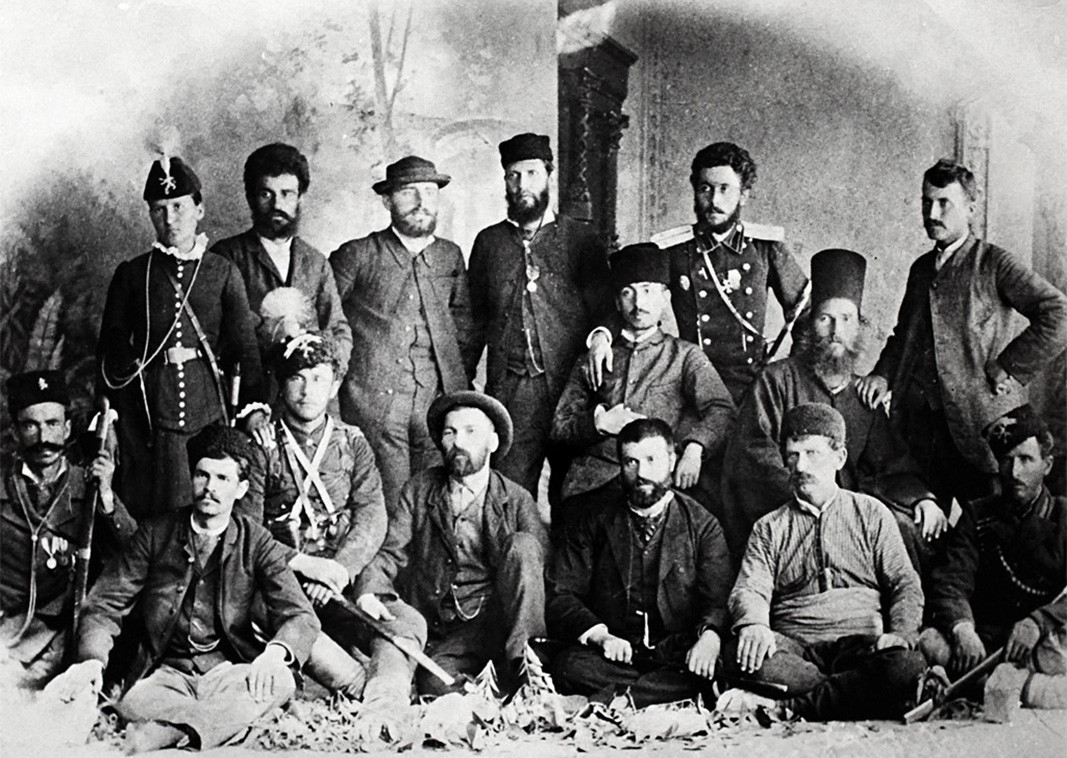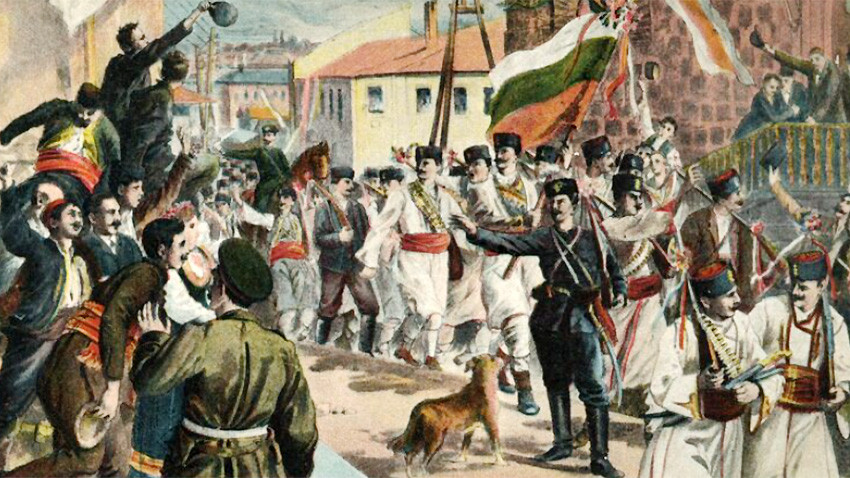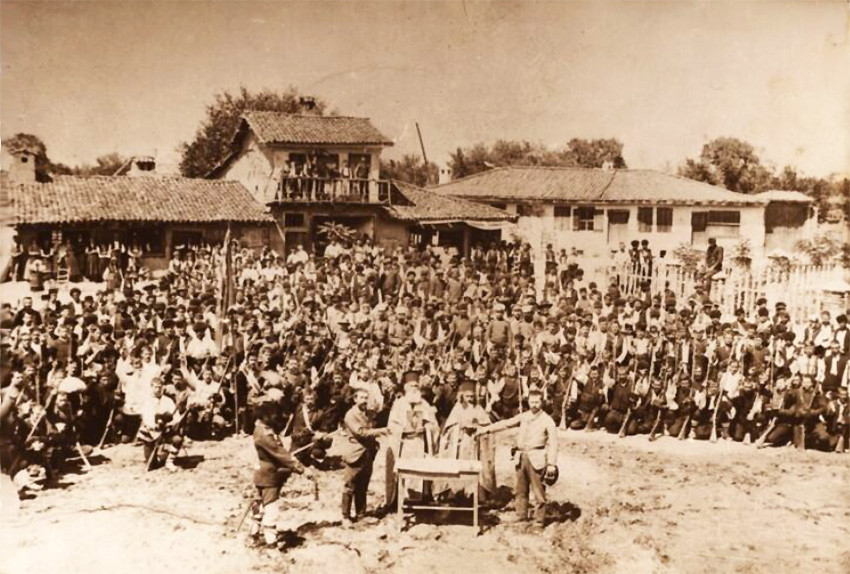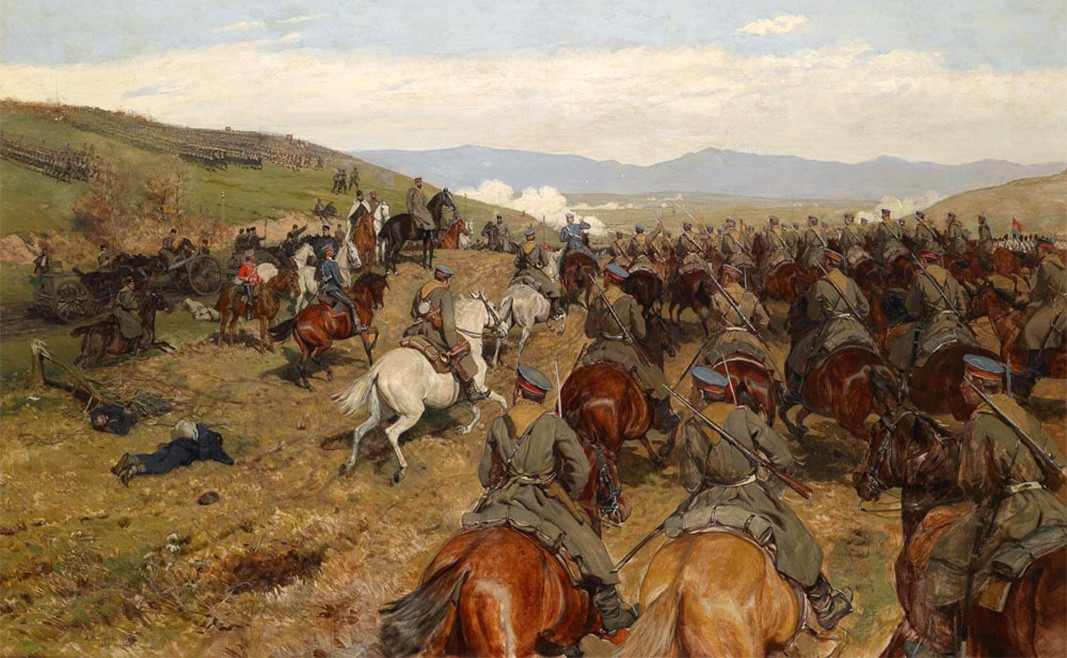On March 3, 1878, a dream so long cherished by all Bulgarian people came true - after a five-century domination by the Ottoman Empire, Bulgaria once again emerged on the political map of Europe. Freedom had finally come, almost all Bulgarians were within the boundaries of the new state and the Aegean was washing its shores again. However, the joy of the broken shackles was short-lived. In the summer of the same year, Bulgaria was fragmented and the national ideal of the Bulgarian National Revival was trampled.
On July 13, 1878, three months after the signing of the San Stefano Peace Treaty, the Great Powers divided Bulgaria into five parts - the vassal Principality of Bulgaria; the autonomous region of Eastern Rumelia; Northern Dobrogea within the borders of Romania; Nis, Pirot and Vranje within Serbia; Macedonia, Eastern and Western Thrace under the direct rule of the Sultan. From this moment on the policy of Bulgaria would be aimed at the unification of all territories inhabited by Bulgarians.
At the initiative of the revolutionary writer Zahariy Stoyanov, in February 1885 the Bulgarian Secret Revolutionary Central Committee was established in Plovdiv, which played an important role in the unification of the Principality of Bulgaria with Eastern Rumelia. The Union Movement focused not only on building a network of committees, but also on providing internal and external political support.

The committee set the date September 15th as the beginning of an uprising to overthrow General Governor Gavril Krastevich and the government in Plovdiv (the most important city in Eastern Rumelia). But on the 5th summoned by the ringing of the church bells in the city, the citizens gathered near the konak. In a proclamation Zahariy Stoyanov announces the holy deed: “Brothers! The hour of the Unification has struck! ” Thus, on the night of September 6, troops led by Major Danail Nikolaev established control over Plovdiv and, without resistance, removed the government and Gavril Krastevich. Eastern Rumelia rejected the sultan's supremacy and announced that it was joining the Principality of Bulgaria.

The "Golde nFund" of the Bulgarian National Radio preserves the story of the military historian Georgi Marin, who passed on the testimonies of his grandfather about the beginning of the accession of Eastern Rumelia to the Principality of Bulgaria in the village of Golyamo Konare (now Saedinenie):
“When the prefect Petar Dimitrov was sent from Plovdiv before the Unification, Prodan Tishkov (known as Chardafon the Great, a sergeant major in the militia of Eastern Rumelia, an active participant in the Russo-Turkish war of Liberation) told the youth that he would be sick and refer the prefect to him. And he lived in the house of grandmother Isaca where Zahari Stoyanov was hiding. The young people surrounded the house and when Petar Dimitrov left, they arrested him. And then they rang the bell and began to form companies. About 2,500 armed men gathered - the larger group went to Plovdiv, and the smaller one to organize the uprising in the other villages. At 3 km from Plovdiv they were met by a cavalry gendarmerie sent to Golyamo Konare to release the prefect. Then the leader of the detachment Chardafon commanded "On your knees to shoot." And we, being in the first company, stood for firing and fired once over the heads of the horsemen. They turned their horses and fled to Plovdiv. From there we set off and reached the bridge over the Maritsa River in Karshiyaka (Northern Region of Plovdiv). "

Support for the Unification was expressed by Prince Alexander I Battenberg, who in a proclamation accepted "to be named Prince of Northern and Southern Bulgaria". However, with their actions the Bulgarians violated the Berlin Treaty, which divided our lands, and this provoked the protest of the Great Powers and the Sultan. And Serbia declared a war on Bulgaria but suffers a devastating defeat in the decisive battle near Slivnitsa.

After the lightning defeat that the young Bulgarian army inflicted on the experienced and better armed Serbian army in just two weeks of war, Bulgaria gained back its international prestige. On March 24, 1886, in Constantinople, the ambassadors of the Great Powers signed an act recognizing the Unification.
Although today's Bulgaria is shrunk beyond its ethnic borders, in its heyday it had access to three seas – the Black, the Aegean and the Adriatic. Today, Bulgarians feel spiritually united in a United Europe, in which physical divisions are increasingly less and less important.
English version Rositsa Petcova
Photos: militarymuseum.bg and archive
Having to flee one’s home and country and take the long road to an uncertain future – that is what refugees have invariably faced through the years, and for the same reasons. People have to flee because of war or their religious beliefs, their..
A display case with small mirrors is part of an exhibition dedicated to the theme of female beauty in antiquity, presented in the Archaeological Museum in the city of Burgas. The exhibition is entitled "Whims through Antiquity. Look in..
Always on Sunday, eight weeks before Easter, Orthodox Christians mark Mesni Zagovezni or Meat Shrovetide. During the liturgy, the Church recalls the image of the Last Judgment through the texts in the Holy Scriptures. The themes of..

+359 2 9336 661
